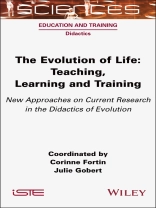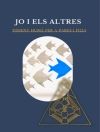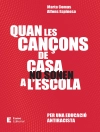The aim of this collective work is to give an account of the topicality and dynamics of new research in the didactics of evolution, by articulating francophone and international work.
The various contributions pursue a reflection on the challenges of teaching and learning about evolution, based on historical, epistemological and societal approaches. The themes addressed illustrate the vitality and diversity of research issues in educational sciences, from primary school to university.
Structured around different theoretical fields (problematization, didactics of the curriculum, nature of science, etc.), this book explores the content, teaching and learning processes and approaches, teaching practices, as well as pre-service and in-service teacher training, with a view to both intelligibility and feasibility.
Table of Content
Introduction xiii
Corinne FORTIN and Julie GOBERT
Part 1 Teaching of Evolution and Beliefs 1
Chapter 1 Student Positions in Learning about Evolution in Relation to Religious Beliefs and Scientific Knowledge 3
Hanaa CHALAK, Marco BARROCA-PACCARD and Francis ROUQUET
Chapter 2 Relationships between the Ideas of Randomness and Understanding of the Evolution of Life among French High School Students 23
Magali COUPAUD, Julie GOBERT, Jérémy CASTÉRA and Alice DELSERIEYS
Chapter 3 The Theory of Evolution: Possible Tensions between Science and Religious Beliefs 45
José Luis WOLFS
Part 2 Teaching Evolution: Educational and Training Issues 71
Chapter 4 If Nothing Makes Sense without Evolution, What Sense Can Be Made of the Biology Content of the Official French School Curriculum? 73
Marco BARROCA-PACCARD
Chapter 5 What if the Chimpanzee Belonged to the Genus Homo? Circulation of Knowledge and Curricular Re-Problematization 89
Corinne FORTIN
Chapter 6 The Current ‘Synthesis versus Extended Theory of Evolution’ Controversy: A Training Opportunity about the Nature of Science 117
Magali FUCHS-GALLEZOT and Corinne FORTIN
Chapter 7 Historical Controversy over the Ages of the Earth and the Necessity for Deep Time for Darwinian Selection: Its Reception in Teacher Education 139
Patricia CRÉPIN-OBERT
Chapter 8 The ‘Conceptual Landscape’ of Evolution: A Possible Instrument for Training of Earth and Life Sciences Teachers 169
Fabienne PAULIN
Part 3 Teaching Evolution: Conceptions and Obstacles 199
Chapter 9 Building a Reasoned History of the Living World at School: Under What Conditions? 201
Denise ORANGE RAVACHOL
Chapter 10 The Concept of Species in Thinking about Evolution and the Scientific Classification of Living Things: Comparative Approach at Different School Levels 221
Yann LHOSTE
Chapter 11 Conditions for the Construction of the Darwinian Concept of Natural Selection by 6th-Grade Pupils in French-Speaking Belgium 243
Jean-François PONCELET, Christian ORANGE and Jean-Christophe DE BISEAU
Chapter 12 Obstacles and Challenges in Teaching Probabilistic Population Thinking in Evolutionary Biology — A Case Study 273
Julie GOBERT and Laurent THEIS
Academic programs 299
Conclusion 301
Corinne FORTIN and Julie GOBERT
List of Authors 303
Index 305
About the author
Corinne Fortin is an associate professor in Didactics of Life and Earth Sciences at the University of Paris-East Créteil (UPEC) and at the André Revuz Didactics Laboratory (LDAR) of the University of Paris-Cité in France.
Julie Gobert is an associate professor in Didactics of Life and Earth Sciences at the Learning, Didactics, Evaluation, Training Laboratory (ADEF) at Aix-Marseille University, France.












